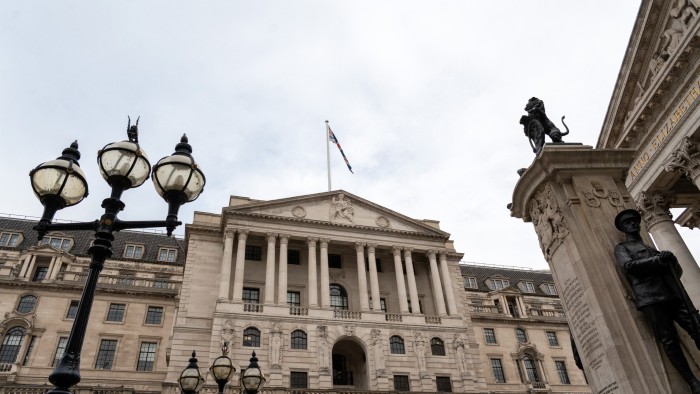Stay informed with free updates
Simply sign up to the UK employment myFT Digest — delivered directly to your inbox.
UK payroll employment fell for a sixth straight month in July but wage growth held steady, underlining the challenge facing the Bank of England as it considers when next to cut interest rates.
Employers cut headcount by 8,000 last month, according to preliminary figures from the Office for National Statistics on Tuesday. Payrolls dropped by 26,000 in June, a smaller decline than the 41,000 previously reported.
Separate figures showed wage growth, excluding bonuses, was unchanged at 5 per cent in the three months to June, in a sign of the persistent price pressures in the economy.
The Bank of England cut interest rates last week by a quarter point to 4 per cent, pointing to a “gradual loosening” in the jobs market and sluggish hiring.
But the vote was a knife-edge one, with four members of the Monetary Policy Committee opting to hold rates as higher food and energy prices threaten to push inflation to a peak of 4 per cent this year.
Economists said that the slower pace of job losses in June and July would go some way to allaying concerns on the MPC that the labour market was facing a severe deterioration.
“There was no sign of the rapid weakening in labour market conditions that the doves on the MPC were concerned about,” said Thomas Pugh, chief economist at accountants RSM UK. “That means today’s data further reduces the chances of another rate cut in November.”
Following the release of the figures, traders continued to expect a further quarter-point cut by the MPC by its February meeting, according to levels implied by swaps contracts.
Recommended
The pound was little changed at $1.3435 in early trading on Tuesday.
The UK unemployment rate held steady at 4.7 per cent in the three months to June, according to the ONS.
The number of job vacancies fell by 44,000 on the quarter to 718,000. Vacancies fell in 16 out of the 18 industry sectors tracked by the ONS, with the largest percentage decrease coming in arts, entertainment and recreation, which recorded a 17.6 per cent drop from the previous quarter.
The still-sluggish jobs market intensifies the pressure on chancellor Rachel Reeves as she prepares for another tough Budget in the autumn.
Businesses have blamed tax increases in Reeves’ October Budget for the pullback in hiring. A £25bn increase in national insurance contributions, announced in the Budget, took effect in April along with a rise in the minimum wage.
The low-paying hospitality sector has shed jobs at the fastest rate since the October Budget, according to the Resolution Foundation, a think-tank, suggesting that “the mini shock of the employer NI and National Living Wage rise combination in April is still feeding through”.
Additional reporting by Ian Smith in London


